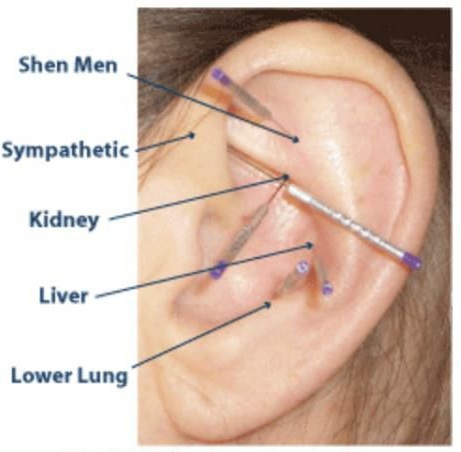Self-Care: Ethical Obligation or Exploitation?- Lydia's Insight
Self-Care
Self-Care: Ethical Obligation or Exploitation?
Greetings! I am Lydia Miller, a licensed clinical social worker and board-certified music therapist practicing in Amarillo, Texas. For the past ten years, I have worked with children, teens, adults, and families experiencing complications from life events, relationship conflicts, and mental health disorders. The health of providers has received increased attention over the past few years – for our profession to thrive, we must learn to take care of ourselves and each other.
The health of providers has received increased attention over the past few years
Exposure to Traumatic Events
Social workers, therapists, psychologists, and counselors (we’ll call them MHPs, or mental health professionals, for short) might not ( depending on their role in the field) risk their lives on the job like a police officer or firefighter, or witness graphic tragedy like a paramedic or nurse, but still deal with trauma daily. MHPs experience traumatic events either indirectly through their clients or directly in the setting that they work in. I know I am not the only one who has been verbally and physically attacked while working in a psychiatric facility. Client stories are heartbreaking, and the things that they have gone through are akin to a horror film. That is in addition to the problems and stress present in our own lives. Still, we show up every day for our clients with open minds and hearts, ready to journey together out of that chaos into a place of peace and safety.
The ‘great resignation’
How do we do it? Simply put, it’s not easy. MHPs know that the effects of psychological trauma on our clients can sometimes be worse than physical trauma, yet many of us minimize the risk that we put ourselves in every day. Add to that inadequate compensation and society’s general dismissal of our profession, it’s no mystery why MHPs have such high rates of compassion fatigue and burnout. The National Association of Social Workers reported how The Great Resignation over the past few years has negatively impacted the field of social work, and other helping professions have had nearly identical experiences. What is the top reason for leaving the profession? Poor compensation and benefits, hazardous work environments, lack of job satisfaction and appreciation, and the negative impact of work on physical, social, and mental health.
Licensed professionals are expected to adhere to a code of ethics that guides their professional behavior and protects the public from harmful practices. The Codes include an ethical obligation to participate in self-care, with the goal of improving their efficacy as a clinician and their longevity as a practitioner. The basic idea is that a healthy MHP is better equipped for working with clients and colleagues. Ironically, MHPs are often the ones least likely to participate in self-care due to a number of career- and gender-related biases. Having an ethical component to self-care gives “permission” to MHPs, the majority of which experience life as and/or identify as women. Copious amounts of research support the practice of self-care and even break down the concept into types of self-care, how to practice self-care, and ways that a person will benefit, both personally and professionally, from self-care. Employers bear some of the greatest responsibility for self-care: creating a culture of safety and care for their employees, allowing for time off to focus on self-care, and the financial support to engage in meaningful self-care activities. Instead, they displace this responsibility entirely to their employees.
For most, self-care becomes a luxury, something that is done only when or if time and money allow.
Self-Care and Capitalism
Self-care has become so mainstream that businesses decided to capitalize through marketing schemes focused on MHPs as the consumer rather than alter their business practices to support their own employees. Commercialized self-care only complicates the problems for MHPs who are already struggling with their professional responsibilities and have neither the time, energy, or financial means to participate in such costly activities, all while maintaining their license through continuing education, professional liability insurance, and advanced certifications and training. How is an MHP supposed to participate in self-care when they spend an inordinate amount of time just trying to maintain their ability to work, making some of the lowest wages in the professional world? Not to mention the extreme caseloads that most MHPs carry while working in community mental health or public service. For most, self-care becomes a luxury, something that is done only when or if time and money allow. The promotion of self-care retreats, mani-pedis, yoga classes, and even continuing education workshops about self-care demonstrate how harmful this can be. MHPs are taught by media and marketing that self-care is a business transaction rather than a set of decisions and practices culminating in a healthier lifestyle.
Employers might have good intentions by assigning you (or strongly encouraging you) to attend a self-care workshop or seminar
In Closing
While this only scratches the surface, it brings up an important question for MHPs: is your involvement with self-care a planned ethical practice, or are you a victim of business exploitation? That is not to say that you are being exploited if you pay for self-care activities. Self-care is a personal experience that may include taking a yoga class or attending a retreat. But if the self-care activity places an extreme burden on you personally, professionally, or financially, that is your first sign it may be a predatory practice. You might consider who is benefitting from the self-care activity more – is it the person you are paying, or is it you? If you find yourself paying $1500 for a mindfulness weekend guaranteed to bring you rest and relaxation, but you end up more stressed and behind on your bills, that is a problem. Employers might have good intentions by assigning you (or strongly encouraging you) to attend a self-care workshop or seminar but can end up creating extra work for you if they do not also provide a break from your workload to adequately participate in and benefit from the workshop or seminar. Just like we comb our policies and procedures for legal and ethical conflicts, we must also critically evaluate our personal and self-care practices, including who we engage with for self-care. At the end of the day, ethical self-care involves intentional, meaningful, and sustainable practices completed on a regular basis, in order to be truly effective.
Written By: Lydia Miller
DISCLAIMER FOR A SOLUTION B, LLC
The Website may discuss topics related to health, fitness, nutrition or medicine. This information should not be treated as medical advice. This blog does not substitute face-to-face medical or therapeutic services. If you require any more information or have any questions about our site's disclaimer, please feel free to contact us by email at asolutionb@gmail.com
DISCLAIMERS FOR A SOLUTION B
All the information on this website - https://www.ASolutionB.Com - is published in good faith and for general information purpose only. A Solution B does not make any warranties about the completeness, reliability and accuracy of this information. Any action you take upon the information you find on this website (A Solution B), is strictly at your own risk. A Solution B will not be liable for any losses and/or damages in connection with the use of our website. Our Disclaimer was generated with the help of the Disclaimer Generator and the Disclaimer Generator.
From our website, you can visit other websites by following hyperlinks to such external sites. While we strive to provide only quality links to useful and ethical websites, we have no control over the content and nature of these sites. These links to other websites do not imply a recommendation for all the content found on these sites. Site owners and content may change without notice and may occur before we have the opportunity to remove a link which may have gone 'bad'.
Please be also aware that when you leave our website, other sites may have different privacy policies and terms which are beyond our control. Please be sure to check the Privacy Policies of these sites as well as their "Terms of Service" before engaging in any business or uploading any information.
CONSENT
By using our website, you hereby consent to our disclaimer and agree to its terms.
UPDATE
Should we update, amend or make any changes to this document, those changes will be prominently posted here.
Follow A Solution B
Products
Related Articles



